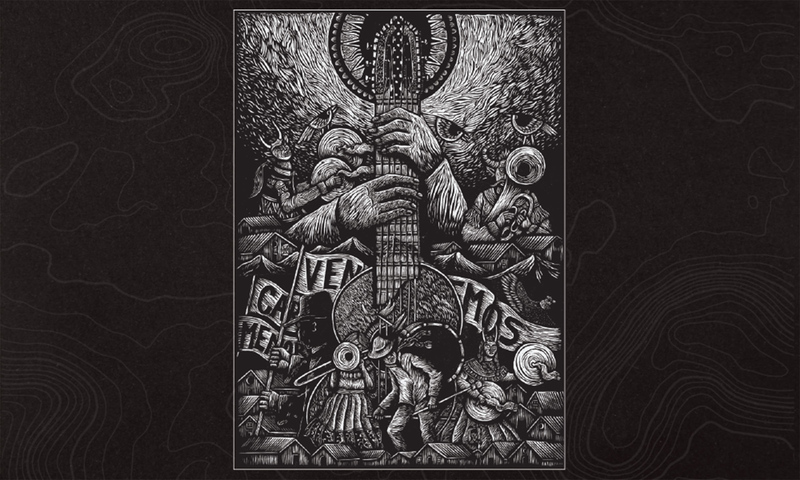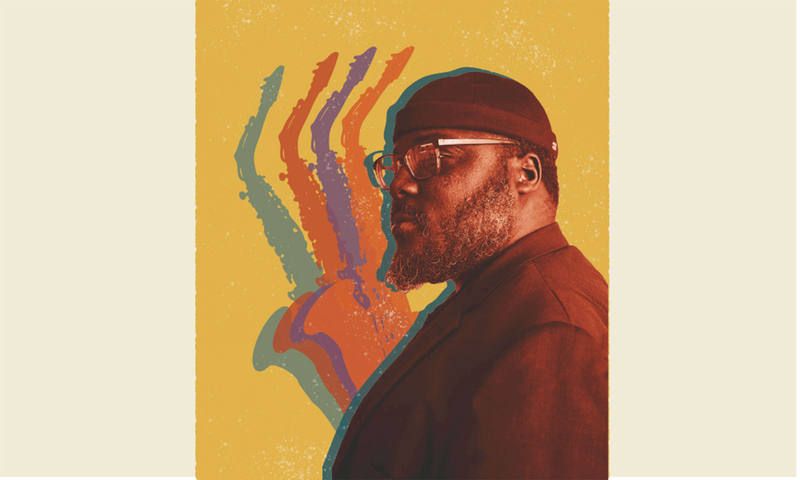Composition and Improvisation: ‘Philosophers and Musicians in Dialogue'
| Location: | |
| Ticket Info: |
Free
|
| Sponsor(s): |
Denison University’s TUTTI Festival with the Titus-Hepp Lecture Series and Vail Series present Composition and Improvisation: “Philosophers and Musicians in Dialogue.”
A Philosophy of Music symposium featuring performances by ETHEL, and guest lecturers, Professor of Philosophy at Villanova University John Carvalho, Professor of Philosophy at Minnesota State Ted Gracyk, independent composer and musician Mark Lomax II and ETHEL.
Refreshments will be served.
Mark Lomax
“The Black Composer as Jali: Composition, Improvisation, and the Afrikan Epic”
In the West Afrikan storytelling tradition, the Jali serve as the professional musicians tasked with preserving the history, rituals, and experiences of the culture in which they were born. These keepers of the culture tell the stories of their people through songs that seamlessly incorporate pre-composed material with improvised sections to create epic narratives that remind the listener who they are, where they have been, and point to the future. This tradition survived the Middle Passage, evolved through the savagery of slavery, and now manifests itself in the work of many contemporary Black American composers. Using examples from his 400: An Afrikan Epic, Lomax will discuss the process by which he worked with composition and improvisation to create aspects of his epic which honors the West Afrikan tradition and is inspired by the work of Duke Ellington, Renee Baker, Anthony Davis, and Wadada Leo Smith.
The 2018 Wexner Center for the Arts Artist-In-Residence, Lomax, II is a critically acclaimed composer, recording artist, and lecturer specializing in the socio-political, and spiritual aspects of African-American art, music, race, and using the arts to build community. These ideas are documented in his TED Talk Activating The Transformative Power Of Trust. He has worked with Clark Terry, Marlon Jordan, Azar Lawrence, Bennie Maupin, Billy Harper, and Ellis Marsalis among others. Jazz Times says Lomax’s “forceful drumming would have made Elvin Jones proud.” With his latest release, Duo Meditations, Lomax synthesizes his experiences, in gospel, jazz, and classical music into a powerful personal concept.
John Carvalho
“The Emergence of Music in Composition and Improvisation”
This paper deploys a skills intentional framework within an enactivist account of music making. Roughly, in an ecology that posits a continuum between the mind, the body and the environment of music makers, skills turn up that afford the emergence of music and the musician with that music. In composition and improvisation, skills turn up in the specific environments of sound encountered by musicians relevant to their aims in those environments.
Carvalho is Professor of Philosophy at Villanova University where he teaches courses on aesthetics and European philosophy influenced by the writings of Nietzsche, Marx and Freud. He is the author of “Thinking with Images: An Enactivist Aesthetics” and of over forty articles including “Strange Fruit: Music between Violence and Death,” “Repetition and Self-Realization in Jazz Improvisation” and two forthcoming articles “Music and Emergence” and “Singing and Signification.” He is currently working on a monograph that will bring an enactivist philosophy of mind to bear on an embodied, cognitive approach to music.
Ted Gracyk
“The Competing Claims of Improvisation”
Since the Renaissance, artists have been expected to pursue and display their creativity. This expectation creates competing demands: audience comprehension requires continuity with past art, but creativity requires novelty and a break from known precedent. Therefore, we live in an age where artists perennially risk the creation of “original nonsense” (to borrow a phrase from Immanuel Kant). On standard accounts of creativity, this excess of novelty counts as creative failure to be genuinely creative, since creative works must be both novel and independently valuable. Performance improvisation is especially prone to this problem. The problem is compounded when we understand that presentation of art for public scrutiny constitutes an artists “ratification” of its artistic value (K. Gover, 2018). So it appears that improvising performers engage in a pre-endorsement of their own artistic failure in those cases where the performance is a poor one. After surveying some recent proposals about the special values present in performance improvisation, I defend a novel value for them: they alone among the arts are valuable (and therefore creative) solely in virtue of their embodied display of human spontaneity.
Gracyk is Professor of Philosophy at Minnesota State University Moorhead and (since 2013) the co-editor of The Journal of Aesthetics and Art Criticism. He is the author of several philosophical books on music, including “Rhythm and Noise: An Aesthetics of Rock Music” and “On Music.” He is co-winner of the 2002 Woody Guthrie Award for “I Wanna Be Me: Rock Music and the Politics of Identity,” the book award of The International Association for the Study of Popular Music-US Branch. With Andrew Kania, he co-edited “The Routledge Companion to Philosophy and Music.” Most recently, he co-authored “Jazz and the Philosophy of Art” with Lee B. Brown and David Goldblatt. He has been a department chair, an acting college dean, and from 2011 to 2015, he served as Faculty President at his university.







